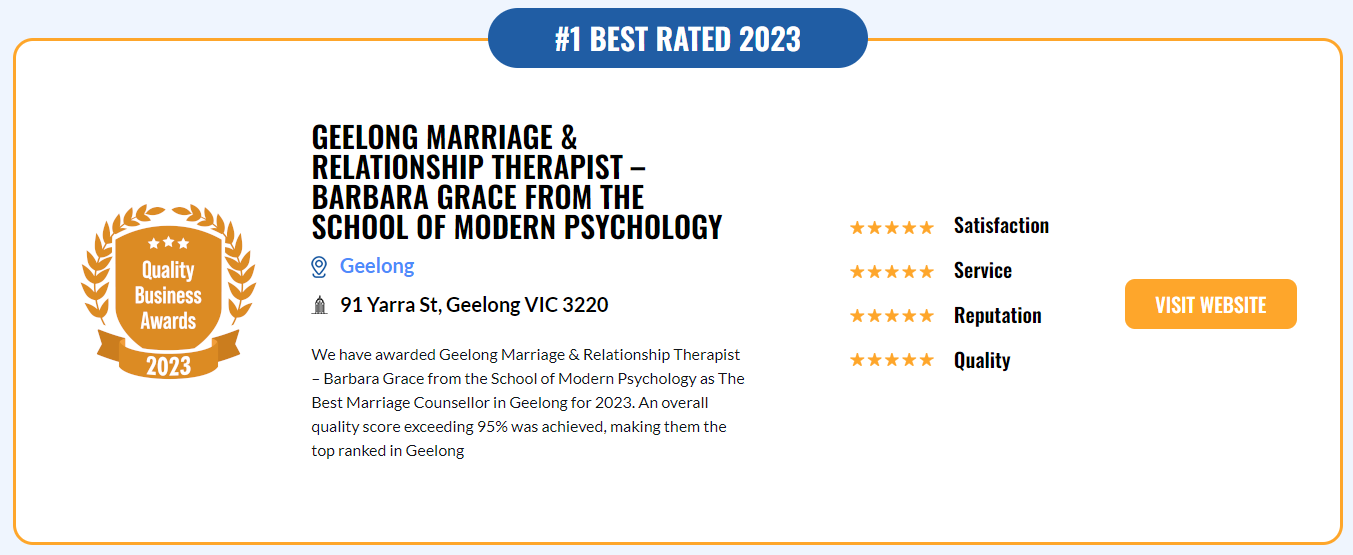How to Communicate Better as a Couple Using This Simple Technique: A Guide to Active Listening
/Improving communication in a relationship can be challenging, but it is essential for building a healthy and happy connection with your partner. Communication is the foundation of any relationship, and without it, misunderstandings and conflicts can arise. If you're struggling to communicate effectively with your partner, you're not alone. Fortunately, there is a simple technique that can help you improve your communication skills and strengthen your relationship.
Active listening is a technique that involves fully concentrating on what your partner is saying, without interrupting or judging them. Active listening is not just about hearing the words your partner is saying; it's about understanding their perspective, emotions, and needs. When you actively listen to your partner, you show them that you value their thoughts and feelings, which can help build trust and intimacy in your relationship.
Implementing active listening in your relationship can be challenging at first, but it's worth the effort. By practicing active listening, you can improve your communication skills and reduce misunderstandings and conflicts in your relationship. In the next section, we'll explore how you can start using active listening in your relationship today.
Key Takeaways
Communication is the foundation of any relationship.
Active listening is a technique that involves fully concentrating on what your partner is saying, without interrupting or judging them.
Implementing active listening in your relationship can help build trust and intimacy, reduce misunderstandings and conflicts, and improve your communication skills.
Understanding The Importance Of Communication
Communication is a fundamental aspect of any relationship, especially romantic ones. Effective communication can help build trust, strengthen emotional bonds, and resolve conflicts. On the other hand, poor communication can lead to misunderstandings, resentment, and even relationship breakdowns. In this section, we will explore the role of communication in relationships and the impact of poor communication.
The Role Of Communication
Communication plays a vital role in any relationship. It allows partners to express their feelings, thoughts, and needs. Good communication can help couples understand each other better, build intimacy, and strengthen their emotional connection. When partners communicate effectively, they can resolve conflicts, make decisions together, and create a shared vision for their future.
Effective communication involves more than just talking. It also requires active listening, empathy, and respect. When partners actively listen to each other, they can understand each other's perspective and respond appropriately. Empathy helps partners connect emotionally, and respect ensures that partners feel valued and heard.
Impact Of Poor Communication
Poor communication can have a detrimental effect on relationships. When partners don't communicate effectively, they can misunderstand each other, and conflicts can escalate quickly. Poor communication can lead to feelings of frustration, anger, and resentment. Over time, these negative emotions can erode the emotional connection between partners and lead to relationship breakdowns.
In conclusion, communication is a critical aspect of any relationship. Effective communication can help build trust, strengthen emotional bonds, and resolve conflicts. On the other hand, poor communication can lead to misunderstandings, resentment, and even relationship breakdowns. By understanding the role of communication and the impact of poor communication, you can take steps to improve your communication skills and build a stronger, healthier relationship with your partner.
The Simple Technique: Active Listening
Communication is key in any relationship, and it's especially important in romantic relationships. If you want to communicate better with your partner, one simple technique that can help is active listening. Active listening is a way of listening that involves fully engaging with the other person and paying close attention to what they are saying.
What Is Active Listening?
Active listening involves more than just hearing the words that your partner is saying. It requires you to be fully present in the conversation and to focus on what your partner is saying. This means giving your partner your full attention, avoiding distractions, and making eye contact. It also means being open and non-judgmental, and avoiding interrupting or finishing your partner's sentences.
To practice active listening, you should focus on the following:
Pay attention to what your partner is saying
Show that you are listening by nodding, making eye contact, and responding appropriately
Avoid interrupting or finishing your partner's sentences
Ask clarifying questions to make sure you understand what your partner is saying
Paraphrase what your partner has said to show that you understand
Benefits Of Active Listening
Active listening has many benefits for couples. It can help you to:
Build trust: When you listen actively to your partner, you show that you value their thoughts and feelings. This can help to build trust in your relationship.
Improve communication: Active listening can help you to communicate more effectively with your partner. When you listen carefully, you are better able to understand their perspective and respond in a way that is constructive.
Resolve conflicts: Active listening can also help you to resolve conflicts more effectively. When you listen carefully to your partner's concerns, you are better able to find a solution that works for both of you.
In conclusion, active listening is a simple but powerful technique that can help you to communicate better with your partner. By focusing on what your partner is saying and showing that you are listening, you can build trust, improve communication, and resolve conflicts more effectively.
Implementing Active Listening In Your Relationship
Effective communication is essential in any relationship, and active listening is a powerful tool that can help you improve your communication skills with your partner. Active listening involves not only hearing what your partner is saying but also understanding their emotions and perspective. Here's how you can implement active listening in your relationship:
Step-By-Step Guide
Give your full attention to your partner. Remove any distractions and concentrate on their words and emotions when they are speaking. Make eye contact, listen carefully, and refrain from interrupting.
Show empathy and understanding. Try to put yourself in your partner's shoes and see things from their perspective. This will help you understand their feelings and respond appropriately.
Paraphrase what your partner is saying. Repeat what your partner has said in your own words to show that you understand their message. This will also help you clarify any misunderstandings and ensure that you are on the same page.
Ask questions. If you are unsure about something, ask your partner for clarification. This will show that you are interested in what they have to say and that you value their opinion.
Common Mistakes To Avoid
Interrupting your partner. Interrupting your partner can be frustrating and disrespectful. It can also prevent you from fully understanding their message.
Focusing on your own thoughts and feelings. Active listening is about understanding your partner's thoughts and feelings, not just your own. Avoid getting defensive or dismissive of your partner's perspective.
Not showing empathy. Showing empathy is essential to active listening. It helps you understand your partner's emotions and respond appropriately.
By implementing active listening in your relationship, you can improve your communication skills, build trust, and deepen your emotional connection with your partner. Remember to give your full attention, show empathy, paraphrase, and ask questions. Avoid interrupting, focusing on your own thoughts and feelings, and not showing empathy. With practice, active listening can become a natural part of your communication style, and you and your partner can enjoy a more fulfilling and satisfying relationship.
Measuring The Success Of Improved Communication
After implementing the simple technique to improve communication in your relationship, it's essential to measure its success. This will help you determine if the technique is working for you and your partner and if any adjustments need to be made.
Positive Changes To Look For
One of the most immediate positive changes you can expect to see is an increase in understanding between you and your partner. By using the technique, you'll be able to express your thoughts and feelings more clearly, and your partner will be able to understand them better. This can lead to fewer misunderstandings and arguments.
You may also notice that you and your partner are more patient with each other. The technique encourages active listening and empathy, which can help you both be more understanding and compassionate towards each other.
Another positive change to look for is an increase in the frequency and quality of your conversations. By using the technique, you'll be able to have more meaningful and productive conversations with your partner. This can help you both feel more connected and satisfied in your relationship.
Long-Term Benefits
Improved communication can have long-term benefits for your relationship. By using the technique consistently, you and your partner can develop a deeper understanding and respect for each other. This can help you build a stronger foundation for your relationship and weather any challenges that come your way.
In addition, improved communication can help you and your partner grow and evolve together. By being able to express your thoughts and feelings more clearly, you can work together to achieve your goals and support each other in your individual pursuits.
Overall, by measuring the success of your improved communication, you can continue to refine and strengthen your relationship with your partner.
Additional Tips For Better Communication
Maintaining Openness
Maintaining openness in communication is essential for a healthy relationship. When you communicate openly, you create an environment where you and your partner can share your thoughts, feelings, and ideas freely. One way to maintain openness is to listen actively to your partner. This means giving them your full attention and acknowledging their feelings. When you actively listen, you are not just hearing their words, but you are also trying to understand their perspective.
Another way to maintain openness is to express yourself honestly. This means sharing your thoughts, feelings, and ideas with your partner without fear of judgment or criticism. When you express yourself honestly, you are being vulnerable, which can help build trust and intimacy in your relationship.
Respecting Boundaries
Respecting boundaries is another important aspect of communication in a relationship. Boundaries are the limits that each partner sets for themselves and their relationship. Respecting these boundaries shows that you value your partner's autonomy and are willing to work together to create a healthy relationship.
To respect boundaries, it is important to communicate openly and honestly about what you are comfortable with and what you are not. This means being clear about your needs and expectations and listening to your partner's needs and expectations as well. It is also important to be willing to compromise and find solutions that work for both partners.
In conclusion, maintaining openness and respecting boundaries are essential for effective communication in a relationship. By listening actively, expressing yourself honestly, and respecting each other's boundaries, you can create a healthy and fulfilling relationship with your partner.
Frequently Asked Questions
What are effective communication skills for couples?
Effective communication skills for couples include active listening, expressing feelings and thoughts in a non-judgmental way, using "I" statements, and being respectful towards each other. These skills can help couples to avoid misunderstandings and conflicts, and to build a stronger and healthier relationship.
What are the three methods for communicating better in a relationship?
The three methods for communicating better in a relationship are active listening, nonverbal communication, and using "I" statements. Active listening involves paying attention to your partner and responding in a way that shows you have understood what they said. Nonverbal communication includes body language, facial expressions, and tone of voice, which can convey emotions and attitudes. Using "I" statements means expressing your own feelings and thoughts instead of blaming or criticizing your partner.
What are the ways of communication between partners?
There are several ways of communication between partners, including verbal communication (talking), nonverbal communication (body language, facial expressions, and tone of voice), and written communication (texting, emailing, or writing letters). Each of these methods has its own advantages and disadvantages, and couples should choose the method that works best for them.
How can I improve my communication in a relationship?
You can improve your communication in a relationship by practicing active listening, using "I" statements, being respectful towards your partner, and avoiding blaming or criticizing them. It's also important to be open and honest with your partner, and to express your feelings and thoughts in a non-judgmental way. Finally, make sure to give your partner the opportunity to express themselves and to listen to what they have to say.
What are some signs of bad communication in a relationship?
Some signs of bad communication in a relationship include misunderstandings, conflicts, arguments, blaming or criticizing your partner, and avoiding communication altogether. If you notice any of these signs, it's important to take action to improve your communication with your partner.
How to have better conversations with your partner over text?
To have better conversations with your partner over text, make sure to use clear and concise language, avoid misunderstandings, and express your feelings and thoughts in a non-judgmental way. It's also important to pay attention to your partner's messages and respond in a way that shows you have understood what they said. Finally, make sure to avoid using text messages to have serious or important conversations, and to use other methods of communication instead.









